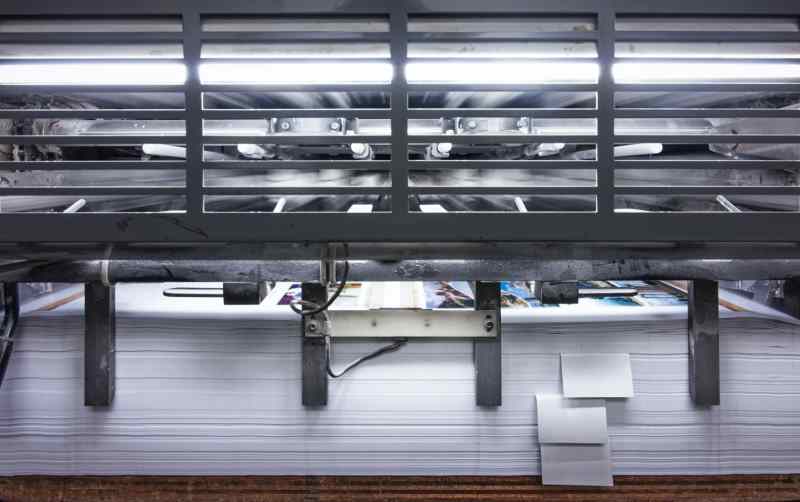
When i was a bairn, my mam would take me to this great big bookstore in Amsterdam, just a hop and a skip away from the city’s central plaza. It’s held a special place in my mind ever since. What burns brightest in my memory, though, isn’t a book or an item of decor or an especially kind employee, but a machine. On the top floor, around the corner from the gift shop, sat the shop’s on-demand printing service.
Twenty-four hours a day, new pages would roll through its glass walls, printing and printing and printing until a book was fully-formed. I don’t remember what was in these books, or what they looked like — i was seven, give me a break — but i’ll be damned if i don’t remember that smell. Freshly-stamped ink, that petrichor of paper, that which one can still catch a whiff of in just-delivered magazines on one’s front porch.
All things must pass eventually, of course. Ink dries, paper cools, and before you know it, your beautiful book smells like nothing at all. Yet in between the tiny strands of ground-up wood that make it up, something else, something just as fragrant, is happening — and to understand the power of that, we must head across the North Sea.
I’ve blogged about Barter Books before: the Mecca of second-hand books, housed in a comically oversized railway station in Alnwick (built that way to the Duke of Northumberland’s specification). It is, in no uncertain terms, one of the coziest places on earth, despite its immense size. Daylight streams through the windows, and when none are to be found, artificial lights decorate the air with a firey golden glow. The most important factor in its gezelligheid (to borrow a term) has long eluded me, but i think i may have finally figured it out.
As books grow musty and yellow with age (a common condition second-hand), they, as any fule kno, gain a certain odour, similar to and yet entirely different from “new book smell”. Crack open the spine, and an earthy, wooden aroma wafts into the nose, with a slight hint of vanilla and an inkling of all the people who’ve leafed through it before. When enough of these old books are in the same place, the air becomes less like that of a building, and more like that of a forest — a way of being outdoors without being outdoors.
Maybe that’s why it’s so cozy in there.